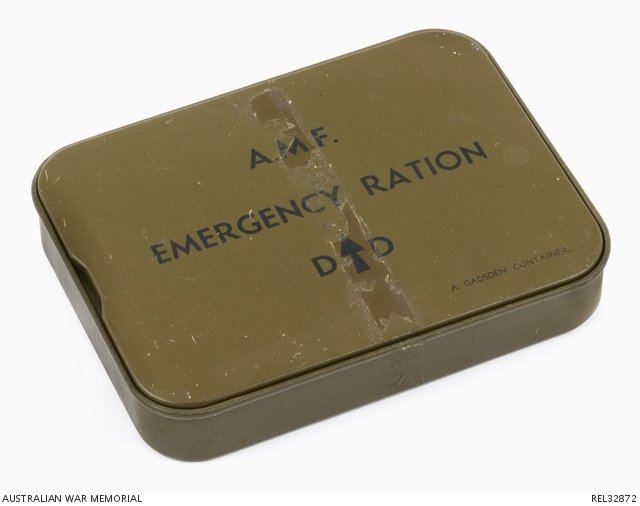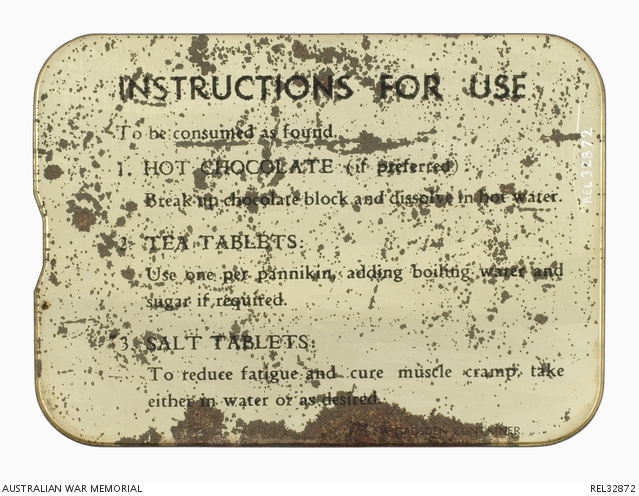| Accession Number | REL32872 |
|---|---|
| Collection type | Heraldry |
| Object type | Foodstuff |
| Physical description | Tin |
| Maker |
J Gadsden Pty Ltd |
| Place made | Australia |
| Date made | October 1944 |
| Conflict |
Second World War, 1939-1945 |
AMF Emergency Ration Tin : Private Raymond Stiller, 52 Composite Anti Aircraft Regiment


An opened olive drab Australian Military Forces (AMF) Emergency Ration Tin with lid. There are instructions printed in black ink on the inside surface of the lid. This reads 'INSTRUCTIONS FOR USE / To be consumed as found. / 1. HOT CHOCOLATE (if preferred) / Break up chocolate block and dissolve in hot water. / 2. TEA TABLETS: / Use one per pannikin, adding boiling water and sugar if required. / 3. SALT TABLETS : / To reduce fatigue and cure muscle cramp, take either in water or as desired.'. The inside surface of the lid has extensive surface rust which obscures parts of the printed information. The outside of the lid has printed in black ink 'A.M.F. / EMERGENCY RATION / D (Government broad arrow) D / A GADSDEN CONTAINER.'. The bottom surface of the ration tin has printed in black ink 'A.M.F. / EMERGENCY RATION / D (Government broad arrow) D / To be consumed only when no other rations of any kind are procurable. Consumption of this ration must be reported at first opportunity. Instructions for use are printed under cover of container'. Remnants of sticky tape that once held both the lid and ration tin together obscures the printed instructions. Stamped in the inside of the opened ration tin is '10-44' indicating that it was produced in October 1944. The inside surface of the ration tin is lightly rusted throughout.
This ration tin was issued to S51477 Private Raymond Stiller during the latter part of the Second World War. Private Stiller was born in Sanderston South Australia on 11 December 1922 and joined the Australian Army on 6 October 1941 at Mount Pleasant, South Australia. He was serving with the 52 Composite Anti Aircraft Regiment when he was discharged on 30 August 1946. These rations were issued to every soldier involved in operations and were only to be opened if no other source of food was available.